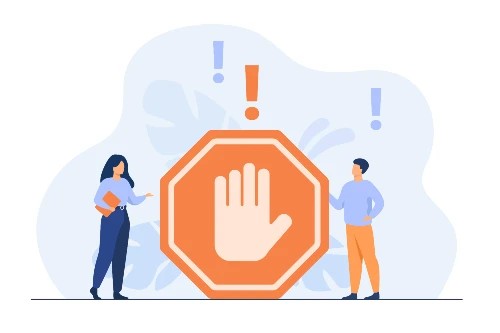How To File A Lemon Law Claim For A Jeep
Owning a Jeep should be an adventure, not a headache. Unfortunately, sometimes things go wrong, and your dream car turns into a “lemon.” If your Jeep is plagued by persistent issues, you may have rights under state lemon laws. This guide will equip you with the knowledge and resources to navigate the lemon law process and potentially reclaim your peace of mind and finances.

Understanding Your Rights
What is Lemon Law?
- Lemon laws are state-specific statutes that protect consumers who purchase vehicles with chronic, unrepaired defects. These laws aim to provide buyers with remedies when manufacturers fail to deliver a vehicle free from significant issues that substantially impair its use, value, or safety.
- Lemon laws apply to new and used vehicles, typically within a certain period of time (e.g., four years or 50,000 miles in California) and under the original manufacturer’s warranty. Some states also have separate lemon laws for motorcycles and leased vehicles.
- Each state has its own lemon law with specific qualifying criteria, remedies, and procedures. Understanding the relevant provisions in your state is crucial for pursuing a claim. We will delve deeper into California’s Lemon Law as an example, but remember to research the specifics in your own state.
- Common Misconceptions:
- Only major safety defects qualify: While serious safety issues like faulty brakes or faulty airbags can qualify, lemon laws also cover non-safety defects that significantly impact the vehicle’s use or value, like recurring electrical problems, transmission issues, or persistent engine trouble.
- You can’t file a claim if you bought a used car: Many states, including California, extend lemon law protections to used cars purchased from dealerships under certain conditions.
- You have to go to court: While litigation is an option, most lemon law claims are settled through negotiation or mediation.
Does Your Jeep Qualify as a Lemon?
- Qualifying Criteria (California Example):
- Four or more repair attempts: If your Jeep has been taken to an authorized dealership for the same defect four or more times within the warranty period, and the problem remains unrepaired, it could be considered a lemon.
- Two or more repairs for a serious safety defect: If your Jeep has had two or more repair attempts for a defect that poses a serious risk to your safety or the safety of others, it could also qualify.
- Out of service for 30 days or more: If your Jeep has been out of service for a cumulative total of 30 days or more due to covered defects within the warranty period, it may qualify as a lemon.
- Substantial impairment of use, value, or safety: Even if your Jeep doesn’t meet the specific repair attempts or out-of-service thresholds, it could still qualify if the defect significantly impairs its use, value, or safety. This requires a more subjective analysis but can still be successful if you can demonstrate the severity of the issue.
- Common Covered Defects: Engine problems, transmission issues, electrical problems, air conditioning/heating system malfunctions, excessive water leaks, paint defects, and recurring brake or steering problems are some examples of covered defects under most lemon laws.
- “Reasonable Attempts at Repair” Rule: This rule dictates that the manufacturer has had a fair opportunity to fix the problem before the vehicle is considered a lemon. Generally, the number of repair attempts deemed “reasonable” depends on the severity of the defect and the impact it has on the vehicle’s use and safety. Consulting an attorney can help you navigate this rule and assess if the repairs were indeed reasonable.
- Out-of-Service Days: Track and document all days your Jeep was out of service due to covered repairs. Accumulated out-of-service days can contribute to your claim, even if the specific repair attempt thresholds haven’t been met.
Gathering Evidence
- Importance of Documentation: Your claim hinges on strong evidence. Gather and meticulously organize all relevant documents, including:
- Repair orders and invoices from authorized dealerships that detail the nature of the defect, repair attempts made, and replacement parts used.
- Receipts for any towing or rental car expenses incurred due to the defective vehicle.
- Communication records (emails, letters, phone logs) with Jeep or the dealership regarding the repairs and your attempts to resolve the issue.
- Maintenance records showing you’ve complied with the manufacturer’s recommended maintenance schedule.
- Detailed Notes: Maintain a chronological log of all issues experienced with your Jeep, including dates, symptoms, and interactions with the dealership. This will help you recall details and build a strong narrative for your claim.
Remember, the more thorough and organized your documentation, the stronger your case will be. By understanding your rights, the qualifying criteria in your state, and the importance of evidence, you can take the first steps towards potentially reclaiming your Jeep or receiving compensation.

Initiating Your Claim – Taking Action on Your Lemon Law Rights
Facing a lemon Jeep can be frustrating and overwhelming. This section guides you through three initial steps to take action and potentially resolve your claim:
Informal Resolution: Negotiating Directly with Jeep
This approach aims to find a solution without legal involvement. While not guaranteed, it can be quicker and less expensive, especially if Jeep acknowledges the problem and offers a fair solution.
Contacting Jeep:
- Customer service hotline: Call the dedicated customer service line for lemon law inquiries. Be prepared to provide details about your vehicle, the issues, and your repair history.
- Email or letter: Send a formal written communication outlining the problem, repair attempts, and your desired outcome. Keep copies for documentation.
- Dealership visit: Schedule an appointment with your dealership service manager to discuss the issue and explore potential solutions. Be assertive but respectful.
Negotiation Tips:
- Gather evidence: Prepare repair orders, invoices, and communication records to support your claim.
- Be clear and concise: Explain the issue, your frustration, and your desired resolution (e.g., replacement vehicle, full refund, extended warranty).
- Be realistic: Understand the limitations of informal resolution. Jeep might offer repairs or a partial refund instead of a full buyback.
- Set a deadline: Give Jeep a reasonable timeframe to respond to your proposal.
- Document everything: Keep detailed notes of all interactions, including dates, names, and key points discussed.
Benefits:
- Quick resolution: If successful, you can get your issue addressed without legal fees or lengthy processes.
- Direct communication: You can directly explain your situation and advocate for your needs.
- Relationship building: A positive interaction can lead to a more amicable resolution.
Drawbacks:
- Uncertainty of success: Jeep may not be willing to offer a satisfactory solution.
- Lack of legal leverage: You may not be able to secure the best possible outcome without legal representation.
- Time limitations: Informal resolution may not be effective if you’re nearing lemon law deadlines.
Consulting an Attorney: Leveraging Legal Expertise
Seeking professional guidance from a lemon law attorney can significantly strengthen your claim and increase your chances of success.
Benefits:
- Expertise and knowledge: Attorneys understand the complexities of lemon laws and can navigate the legal process efficiently.
- Stronger case: Attorneys can gather evidence, analyze legal arguments, and build a compelling case for maximum compensation.
- Negotiation advantage: Attorneys can negotiate on your behalf, secure better settlements, and protect your rights.
- Emotional support: Dealing with a lemon can be stressful. Attorneys can provide guidance, support, and peace of mind.
Finding the Right Attorney:
- Specialization: Look for attorneys specializing in lemon law in your state.
- Experience and reputation: Check online reviews, bar association recommendations, and past case successes.
- Schedule consultations: Discuss your case with several attorneys to assess their knowledge, communication style, and fee structure.
- Ask questions: Inquire about their experience handling similar cases, their approach to your situation, and their preferred communication methods.
Costs:
- Contingency fee: Many lemon law attorneys work on contingency, meaning they only get paid if they win your case. Upfront costs may apply for investigation or filing fees.
- Hourly rates: Some attorneys charge hourly fees, regardless of the outcome. Discuss payment options and potential expenses upfront to avoid surprises.
Sending a Demand Letter: Asserting Your Rights with a Formal Notice
A well-crafted demand letter is a powerful tool to formally notify Jeep of your claim and initiate the legal process.
Purpose:
- Informally notify: Clearly state your lemon law claim and the specific provisions you believe Jeep has violated.
- Outline the issue: Detail the history of the vehicle’s problems, repair attempts, and documentation.
- Demand action: State your desired outcome (e.g., vehicle replacement, buyback, financial compensation).
- Set a deadline: Provide Jeep a reasonable timeframe to respond to your demands (typically 30-60 days).
Structure:
- Introduction: Introduce yourself and identify your vehicle.
- Background: Briefly explain the history of the problems and repair attempts.
- Legal basis: Cite the specific lemon law provisions you believe have been violated.
- Demand: Clearly state your desired outcome and provide evidence to support your claim.
- Deadline: Set a timeframe for Jeep’s response and inform them of your next steps if they fail to comply.
- Conclusion: Conclude politely but firmly, indicating your willingness to pursue legal action if necessary.
Benefits:
- Puts Jeep on notice: Demonstrates your seriousness and understanding of your rights, potentially prompting them to reconsider their position and offer a fair solution.
- Strengthens your legal position: Creates a documented record of your claim and communication with Jeep, which can be valuable if you need to take legal action later.
- Initiates negotiation: Opens the door for communication and possible settlement without involving the courts, potentially saving time and money.
- Preserves your legal options: Sending a demand letter within the prescribed lemon law timeframe ensures you don’t inadvertently waive your rights to pursue further legal action if necessary.
Additional Tips for Sending a Demand Letter:
- Seek professional help: Consider consulting with a lemon law attorney to draft and send the demand letter. This ensures it is legally sound, effectively communicates your case, and adheres to your state’s specific lemon law requirements.
- Keep a copy: Always retain a copy of the demand letter for your records.
- Proofread carefully: Ensure the letter is free of errors and typos before sending it.
Sending the demand letter via certified mail with return receipt provides documented proof of delivery and protects your rights in case Jeep claims they never received it.
Sample Demand Letter Template:
While specific formatting and content may vary depending on your state’s lemon law provisions and the details of your case, here’s a general template to guide you:
[Your Name]
[Your Address]
[Your Phone Number]
[Your Email Address]
[Date]
[Jeep Corporation]
[Jeep Corporation Address]
Re: Lemon Law Claim for [Year, Make, and Model of Your Jeep]
Dear [Jeep Corporation Representative],
This letter serves as a formal notification of my lemon law claim under the [State] Lemon Law for my [Year, Make, and Model of Your Jeep] bearing VIN number [Your Jeep’s VIN Number].
[ Briefly explain the history of the vehicle’s problems and repair attempts. Include specific dates, details of the issues, and any documentation you have, such as repair orders or invoices. ]
Based on the above, I believe my vehicle qualifies as a lemon under the [State] Lemon Law due to [ Cite the specific lemon law provisions you believe have been violated. ].
Therefore, I demand [ State your desired outcome, such as vehicle replacement, buyback, or financial compensation. ].
I have attached copies of all relevant documentation to support my claim. Please respond to this letter within [ Number ] days of the date of this letter to confirm your acceptance of my demand. If I do not receive a satisfactory response within this timeframe, I will be forced to pursue all legal remedies available to me under the [State] Lemon Law.
Thank you for your time and attention to this matter.
Sincerely,
[Your Signature]
[Your Typed Name]
Attachments:
- Repair orders
- Invoices
- Communication records with Jeep
- Other relevant documentation
By following these steps and utilizing a well-crafted demand letter, you can significantly improve your chances of resolving your lemon law claim favorably without resorting to lengthy and costly legal proceedings. Remember, knowledge, assertiveness, and proactive action are key to reclaiming your rights and getting the fair outcome you deserve.

Navigating the Legal Process – Charting Your Course of Action
Once you’ve initiated your claim, the path forward can involve mediation, arbitration, or formal litigation. Here’s a detailed breakdown of these options to help you choose the best strategy:
Mediation or Arbitration: Alternative Dispute Resolution Options
These methods offer faster and potentially less expensive alternatives to courtroom litigation. Both involve a neutral third party (mediator or arbitrator) who facilitates communication and helps reach a mutually agreeable settlement.
Mediation:
- Process: A mediator guides informal discussions between you and Jeep, aiming to find a common ground and compromise solution. The mediator has no decision-making power.
- Pros: Flexible, confidential, cost-effective, preserves relationships.
- Cons: No guarantee of success, settlement depends on both parties’ willingness to compromise.
Arbitration:
- Process: An arbitrator acts as a judge, hearing arguments and evidence from both sides before issuing a binding decision. This decision is usually final and can be appealed only on limited grounds.
- Pros: Faster than a lawsuit, less formal, potentially lower costs.
- Cons: Binding decision, higher risk of an unfavorable outcome compared to mediation, less procedural flexibility.
Choosing Between Mediation and Arbitration:
- Consider your desired outcome, risk tolerance, and budget.
- If seeking flexibility and preserving relationships, mediation might be preferred.
- If a faster resolution and finality are important, arbitration could be suitable.
- Consult your attorney to evaluate which option best aligns with your specific case and goals.
Filing a Lawsuit: The Formal Litigation Route
If alternative dispute resolution fails or isn’t suitable, you can initiate a formal lawsuit against Jeep in the appropriate court.
- Process: You file a complaint outlining your lemon law claim and desired remedies. Jeep will respond with their defense. Both parties gather evidence, engage in pre-trial proceedings, and prepare for a possible trial.
- Pleading Your Case: Present evidence through witness testimonies, expert opinions, and documented proof of your claim.
- Presenting Evidence: Utilize repair orders, invoices, communication records, photos, and videos to support your arguments and demonstrate the severity of the defects.
Benefits of a Lawsuit:
- Greater control over the legal process: You have the right to present your case fully and challenge Jeep’s arguments.
- Potentially higher compensation: You may be awarded full compensation, including attorney fees, if you win.
Drawbacks of a Lawsuit:
- Time-consuming and expensive: Litigation can be lengthy and incur significant costs for attorney fees, court filing fees, and expert witness fees.
- Stressful and unpredictable: The outcome is uncertain, and the process can be emotionally draining.
Settlement or Judgment: Reaching a Resolution
Both lawsuits and alternative dispute resolution often culminate in settlements to avoid the uncertainties of trial.
Negotiating a Settlement:
- Your attorney negotiates with Jeep’s representatives to reach a mutually agreeable compromise.
- Consider factors like the strength of your case, potential costs of ongoing litigation, and your desired outcome.
Preparing for Trial:
- If no settlement is reached, your attorney prepares your case for presentation in court. This includes witness preparation, evidence organization, and legal arguments development.
- Be prepared to testify and answer questions about your vehicle’s issues and repair attempts.
Potential Outcomes:
- Win: You receive the desired outcome, such as vehicle replacement, buyback, or financial compensation.
- Lose: Jeep’s defense prevails, and you receive no compensation.
- Appeal: You have the right to appeal the verdict if you disagree with the outcome.
Remember:
- Consult your attorney throughout the process to navigate the legal complexities and strategize the best course of action for your case.
- Be patient and persistent. Resolving a lemon law claim can take time and effort.
- Maintain clear communication with your attorney and stay informed about developments in your case.
By understanding your options and navigating the legal process effectively, you can increase your chances of achieving a favorable outcome and reclaiming your rights in the face of a lemon Jeep.

Tips and Conclusion – Taking Charge of Your Lemon Law Claim
Navigating a lemon law claim can be daunting, but it doesn’t have to be an overwhelming ordeal. By adopting the right mindset and applying effective strategies, you can significantly increase your chances of success. Here’s a deeper dive into crucial tips and a closing conclusion:
Top Tips for Success:
- Communication is Key:
- Attorney liaison: Keep your attorney informed of every development, ask questions, and leverage their expertise.
- Documentation: Maintain a meticulous record of interactions with Jeep, including dates, names, and key points discussed. Copies of emails, letters, and phone logs are vital.
- Professionalism: Even when frustrated, remain courteous and assertive in your communication with all parties involved.
- Organization Counts:
- Document collection: Gather and carefully organize all relevant documentation, including repair orders, invoices, receipts, communication records, and any visual evidence (photos, videos) of the vehicle’s defects.
- Timeline creation: Build a chronological timeline outlining the history of the vehicle’s problems and repair attempts. This visual representation strengthens your case and aids memory recall.
- Setting Realistic Expectations:
- Timeframes: Understand that resolving a lemon law claim can take time. Embrace patience and avoid expecting a quick fix.
- Negotiation preparedness: Recognize that compromise and negotiation are often part of the process. While aiming for the best possible outcome, remain open to realistic solutions.
- Positive focus: Channel your energy towards the desired outcome: reclaiming your rights and resolving the situation favorably.
Additional Tips:
- Vehicle research: Investigate your specific Jeep model and common issues faced by other owners. This strengthens your case with relevant data and shared experiences.
- Support networks: Consider joining a lemon law support group or online forum. Connecting with others in similar situations can provide valuable advice, emotional support, and a sense of community.
- Stay informed: Keep yourself updated about lemon law developments and changes in your state. Familiarity with the latest legal landscape empowers you to utilize all available provisions to your advantage.
Conclusion:
Facing a lemon Jeep can be frustrating and financially taxing. However, remember that you have the power to take action and protect your consumer rights. By equipping yourself with knowledge, adopting effective strategies, and maintaining consistent communication and organization, you can successfully navigate the legal process and achieve a favorable resolution. Embrace your tenacity, utilize the resources available, and don’t hesitate to seek professional guidance when needed. By taking charge of your situation, you can reclaim your rights and ensure a fair outcome for the inconvenience you’ve faced.







